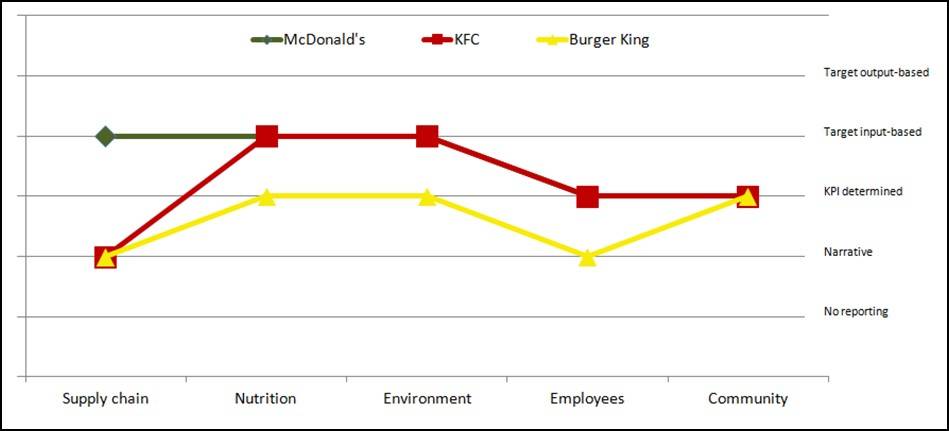Thank you for visiting the Finch & Beak website. Finch & Beak is now part of SLR Consulting, a global organization that supports its clients on setting sustainability strategies and seeing them through to implementation.
This is an exciting time for us, as our team now includes an array of new colleagues who offer advisory and technical skills that are complementary to our own including Climate Resilience & Net Zero, Natural Capital & Biodiversity, Social & Community Impact, and Responsible Sourcing.
We would like to take this opportunity to invite you to check out the SLR website, so you can see the full potential of what we are now able to offer.
Debbie de Wagenaar, Director Corporate Communication for McDonald’s Netherlands at the time of writing, acknowledges the gap. “We are trying to close the gap by storytelling. Our employees, suppliers and customers are our best ambassadors. They tell the story about the career opportunities, where ingredients come from and how they are being processed into products.”
In its brand new 2012-2013 Corporate Social Responsibility & Sustainability Report, McDonald’s published its global Corporate Social Responsibility & Sustainability Framework, of which a set of ambitious global 2020 goals within its five focus areas has been communicated. Some highlights include:
In the Corporate Social Responsibility & Sustainability Report, McDonald’s has not yet published a materiality matrix, but it has defined five focus areas: Sustainable Supply Chain, Nutrition & Well-Being, Environmental Responsibility, Employee Experience, and Community. When Finch & Beak conducted a materiality assessment in 2012/13 for McDonald’s Netherlands, the opinion of a diverse group of stakeholders such as (local) governments, consumer and labor organizations, NGOs, and the Ronald McDonald Fund was evaluated. And on top a quantitative survey was done which included consumers, franchisees, employees, and suppliers. They were asked what they considered the most relevant social and environmental issues -so called material issues- for McDonald’s. Therefore, the next step within McDonald's will be to tailor the approach to the European situation in the coming months.
When comparing the results of that analysis in the Netherlands, there is a clear match between the five focus areas in the global framework and the issues in the Dutch context. An relevant exception is animal wellbeing (included for the Netherlands, but not on a global level). We notice there is a cultural gap between (North Western) Europe and the US on this matter, where in the latter sustainable farming tends to focus to a high degree on enironmental and economic, and somewhat less on social issues such as animal wellbeing.
Selecting and ranking the material issues based on their relevance to stakeholders and their business impact will give an insight into topics to address in terms of risk and opportunity. Based on public reporting, we can compare the company with its peers in the informal eating out industry, resulting in the following value graph:

As it appears, McDonald’s is ahead of its peers in terms of the maturity of its program. Burger King lags behind and KFC is speeding up, mainly under the umbrella of parent company Yum! Brands (also the home of Pizza Hut and Taco Bell). However, the company does not seem to be communicating actively on brand level. This leaves fertile ground for differentiation for McDonald’s.
No organization stands on itself: it has important groups within and surrounding the company that have a stake in the company. The company describes its operations as a “three-legged stool”, consisting of the company and its employees, its franchisees and its suppliers.
For McDonald’s Netherlands “being part of the European supply chain does sometimes limit our local innovation possibilities, on the other hand it is a secure and solid base which few companies can match”, according to Debbie. “And since consumers tell us time and again that quality assurance and listening to their needs are the most vital elements for building trust and good will, we keep walking this road.”
The value assigned by McDonald’s to its global suppliers was underlined by the company with the publication of the ‘Best of Sustainable Supply’ report earlier this year, listing fifty-one case studies highlighting sustainable supply best practices from around the world. This approach labeled as “Our journey together for good” fits the Creating Shared Value trend perfectly, and leaves McDonald’s opportunities to differentiate form the competition. This already paid out during the food integrity crises is the past months, where McDonald’s was praised for its secure supply chain. More on McDonald's European sustainability best practices can be found on Best of Green.
Image by Leonard J. DeFrancisci
Finch & Beak
hello@finchandbeak.com
+34 627 788 170